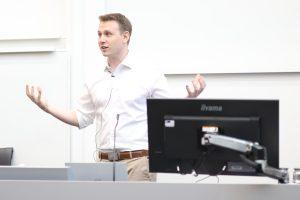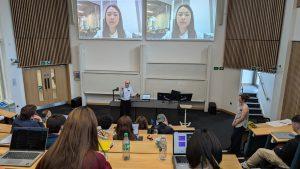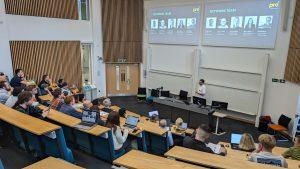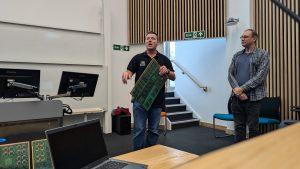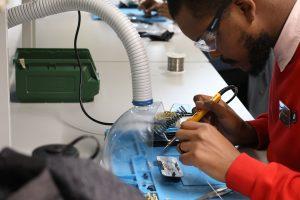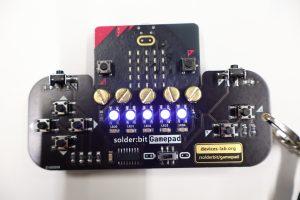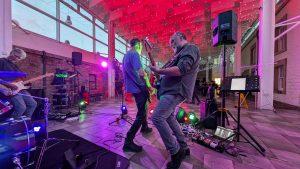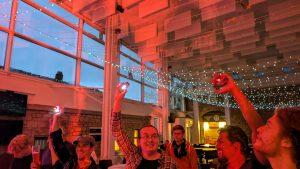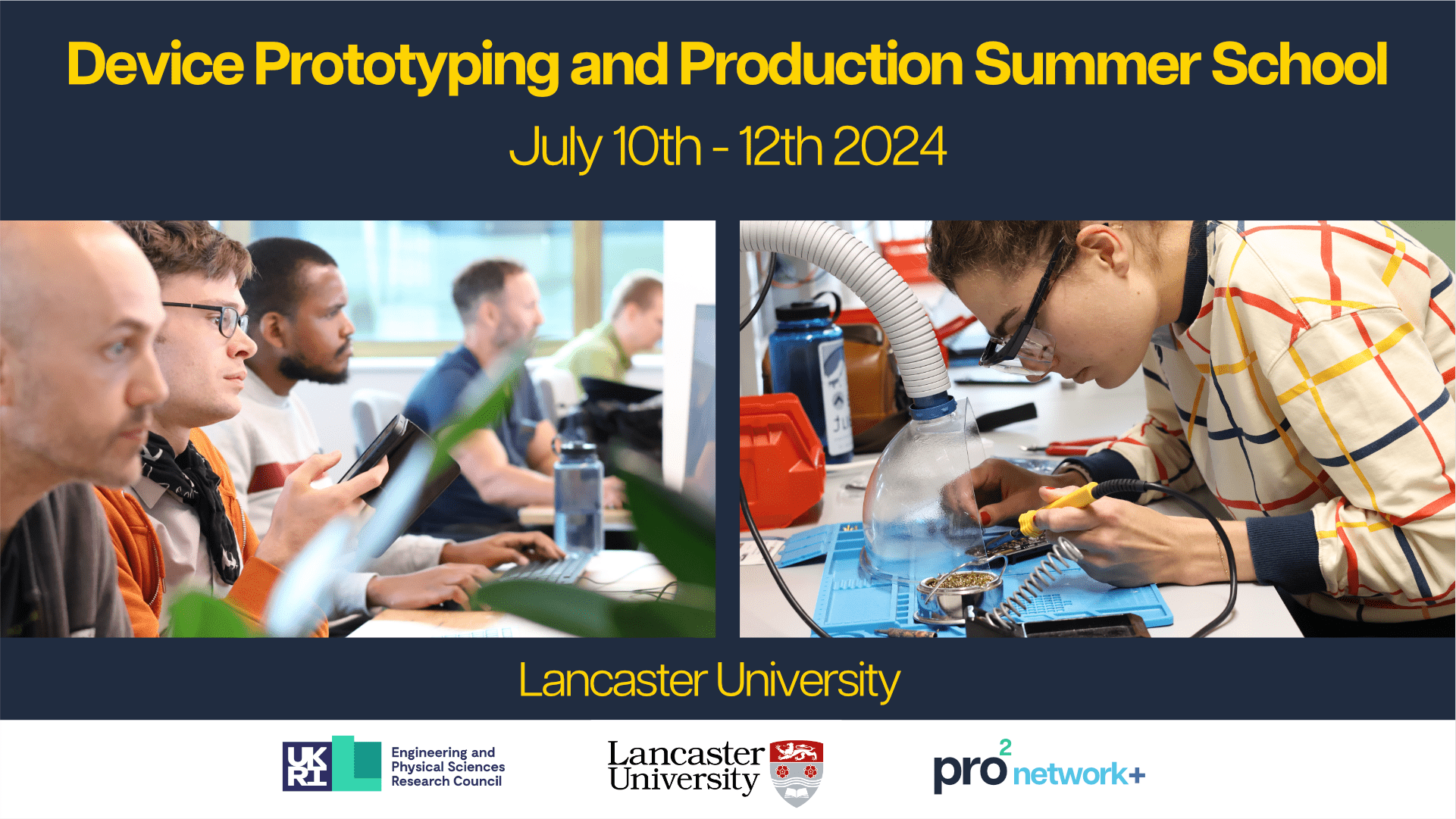
“From the outset of the three days, the engagement and enthusiasm from the attendees was palpable.”
“We arrived with prototypes and left with a deeper understanding of the intricate process of bringing a product to life.”
The first inaugural Device Prototyping and Production Summer School took place from 10th to 12th July this year. Organised by Professors Joe Finney and Steve Hodges, leads of the pro² Isotyping Theme, the UKRI funded event was hosted by Lancaster University and welcomed over thirty delegates from across the UK and abroad.
Delegates of all backgrounds and skill levels were invited to attend following the submission of short papers describing a device prototype they are seeking to scale and refine for manufacture. Prototypes spanned a wide range of fields, including medicine, education, sustainability, and the arts. Over the course of the three-day summer school, instruction was provided in a variety of formats from hands-on tutorials to keynote talks by experts in the field, all with the aim of empowering delegates with the knowledge and skills needed to advance their prototypes to market-ready products.
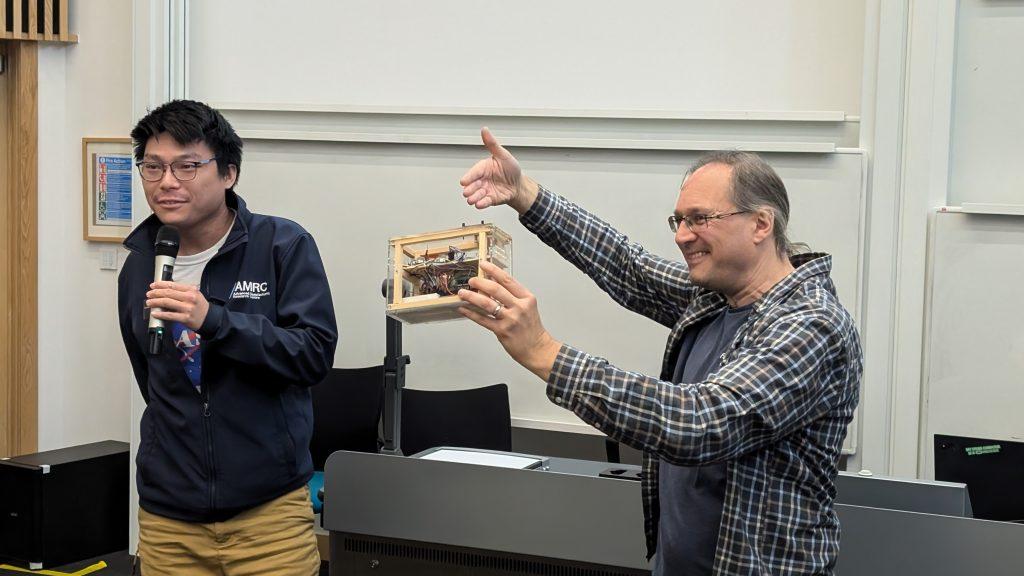
Delegate Yun-Hang Cho introduces himself at the summer school while Prof. Joe Finney displays Yun-Hang’s prototype.
Included among the expert speakers were Steve Jones of Eurocircuits, John Hardy of Hardy & Ellis Inventions, and Mandy Xiang of Seeed Studio who joined the event remotely from her workplace in Shenzhen, China. Topics covered included PCB design and manufacture, the challenges low-volume producers may face when scaling prototypes, and innovative solutions for overcoming these. pro² network+ chair, Professor Mike Fraser of the University of Bristol, shared the network’s origin story and mission, while network co-chair Steve Hodges presented the talk ‘Unlocking a long tail of hardware’ that laid out much of the conceptual foundation for the network’s aims.
- John Hardy (Hardy & Ellis Inventions)
- Mandy Xiang (Seeed Studio)
- Mike Fraser (U. of Bristol)
- Steve Jones (Eurocircuits)
Practical tutorials were led by John Vidler, Kobi Hartley, Lorraine Underwood, Aron Eggens, and Davina Olasoju of Lancaster University. Among these were an opportunity for delegates to refine their surface mount assembly skills as they built their own ‘solder:bits’, a custom game controller developed by Lancaster’s Devices Lab using Micro:bit PCBs and Neopixel LEDs. Following this attendees participated in a coding session and added Jacdac components to their solder:bits for additional functionality. All of this culminated in a digital device that could remotely control concert lighting – just in time for a gig by Joe Finney’s band, The Usuals.
- Delegate Migisha Boyd participates in a surface mount assembly tutorial
- The ‘Solder:bit’ custom controller
- Prof Joe Finney’s band, The Usuals
- Delegates using solder:bits to control gig lighting
These opportunities for networking and socialising throughout the summer school were highly valued by attendees. PhD student Aude Vuilliomenet of University College London published her own review of the event, saying, “The experience was both enlightening and inspiring. We arrived with prototypes and left with a deeper understanding of the intricate process of bringing a product to life.”
On the final day of the summer school, delegates enjoyed one last tutorial session in which they had the opportunity to try out ‘Make Device’, a new app that aids in the design of electronic devices. ‘Make Device’ is part of the pro² funded project REPLICATE led by Professor Andrew Scott and Kobi Hartley of Lancaster University.
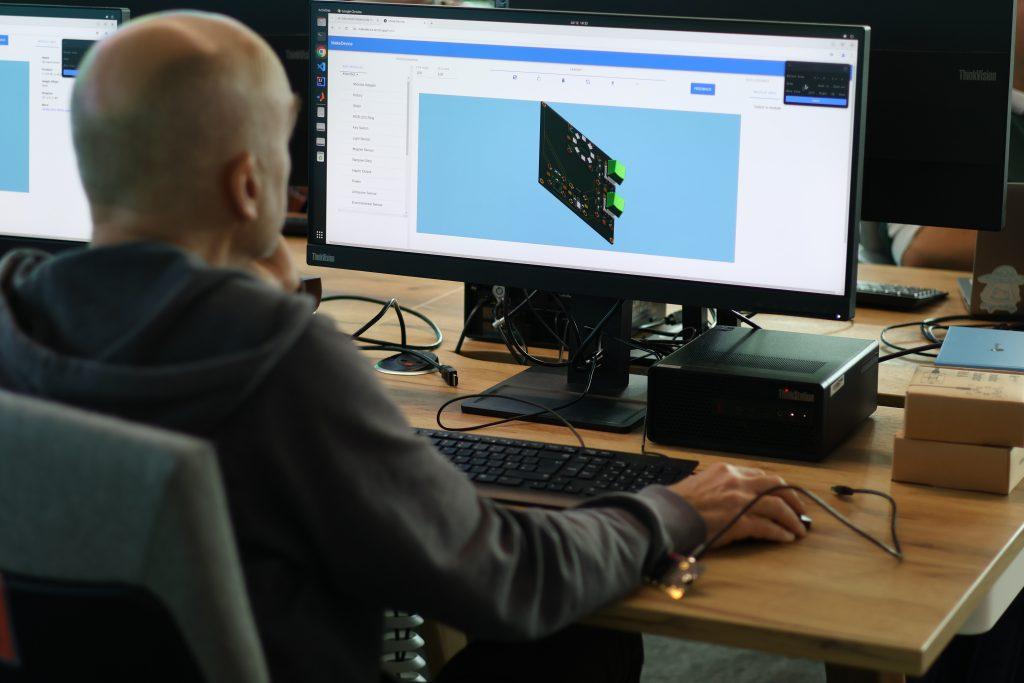
Delegate Matthew Little explores the ‘Make Device’ app in development as part of the pro² funded ‘REPLICATE’ project
Following this, the event closed with the announcement of the winners of the Summer School Prize Competition. Winners were selected on the basis of projects with the most potential for impact and received awards of £200 or £1,000 to further develop their prototypes under the guidance of Professors Joe Finney and Steve Hodges. Jack Burnett (Uni. of Bristol), Charles Anderson & Rajas Poorna (Georgia Institute of Technology), and Migisha Boyd (Swansea Uni.) were awarded prizes of £1,000. £200 award winners were Jonas Beuchert (UK Centre for Ecology & Hydrology), Matthew Little (RE-Innovation), Ling Liu (Imperial College London), Kim Sauvé & James Nash (Uni. of Bath), and Aude Vuilliomenet (Uni. College London).
You can learn more about the summer school delegates’ prototypes on the Showcase page of our website.
About the event, Professor Steve Hodges said, “We were delighted to welcome so many electronic device creators to Lancaster! From the outset of the three days, the engagement and enthusiasm from the attendees was palpable.
In addition to the practical advice we gave about scaling up device-based research for real-world impact, delegates valued joining a like-minded community. We plan to keep the conversations going and to grow the community as part of our pro² network+ mission to simplify electronic device prototyping and production.”
If you’d like to keep up-to-date with future pro² events and funding calls, register for free as a network member and follow us on our social media channels (X, LinkedIn, Instagram).

